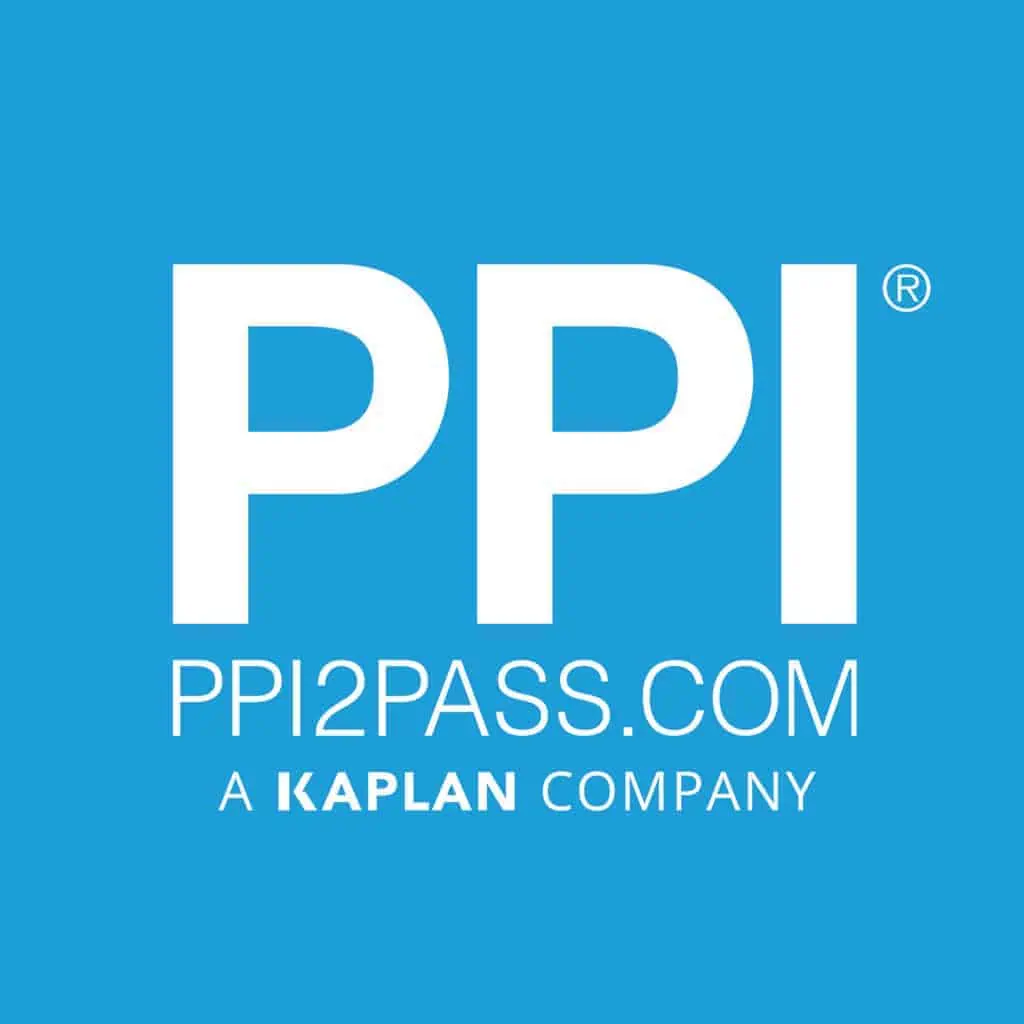In this article (and video above), I talk with April Woods, PE, LEED AP BD+C, Senior Vice President at WSP USA, about the crucial role that a Professional Engineering (PE) license plays in an engineering career.
Here Are Some of the Questions I Ask April:
- Could you describe your work experience in mechanical engineering and how it relates to your degree in architectural engineering?
- Working on Florida’s first all-electric hospital sounds exciting; what makes this project unique?
- Would you discuss the challenges you faced in getting your PE license and how you overcame them?
- Can you give real examples of how your PE license has helped you in your projects or daily work?
- Can you share a specific project where having your PE license made a significant impact?
Here Are Some Key Points Discussed in This Episode:
[Read more…] about Why You NEED a PE License for Engineering Career Success!
 Jeffrey Basiliere, EIT, is a Project Engineer at the Sugar Cane Growers Cooperative of Florida, overseeing sugarcane production and processing. Previously, he worked at Concept Group, LLC, focusing on product design with Insulon® Technology. He holds a Bachelors of Science in Mechanical Engineering from Florida Atlantic University and served in the United States Marine Corps with deployments to Afghanistan. Jeffrey is dedicated to achieving his engineering goals, including passing the FE exam and pursuing licensure as an EIT since 2021.
Jeffrey Basiliere, EIT, is a Project Engineer at the Sugar Cane Growers Cooperative of Florida, overseeing sugarcane production and processing. Previously, he worked at Concept Group, LLC, focusing on product design with Insulon® Technology. He holds a Bachelors of Science in Mechanical Engineering from Florida Atlantic University and served in the United States Marine Corps with deployments to Afghanistan. Jeffrey is dedicated to achieving his engineering goals, including passing the FE exam and pursuing licensure as an EIT since 2021.
 Mauricio Bernal is currently pursuing a Bachelor of Science in Civil Engineering and a Bachelor of Business Administration in Finance at the University of Missouri-Kansas City, with an expected graduation in May 2026. On campus, he is a UMKC Trustee’s Scholar, serves as Vice President of the Society of Hispanic Professional Engineers, and is actively involved in the Latinx Student Union, American Society of Civil Engineers, and the concrete canoe team. After his freshman year, Mauricio began his internship at Burns & McDonnell in the transmission and distribution global practice, working on underground and submarine cable projects. Returning for his second summer, he is now contributing to the power group, providing civil work for solar, wind, and power plant projects. On Saturdays, he serves as a Data Science Instructor for the K-12 Initiative Pipeline Programs, teaching soil science and developing STEM curricula for over 200 students. Through his studies and his time at Burns & McDonnell, Mauricio has gained experience with Autodesk Civil 3D, SolidWorks, HydroCAD, Power BI, and FLO-2D. Mauricio is preparing to take the FE exam in Spring of 2025.
Mauricio Bernal is currently pursuing a Bachelor of Science in Civil Engineering and a Bachelor of Business Administration in Finance at the University of Missouri-Kansas City, with an expected graduation in May 2026. On campus, he is a UMKC Trustee’s Scholar, serves as Vice President of the Society of Hispanic Professional Engineers, and is actively involved in the Latinx Student Union, American Society of Civil Engineers, and the concrete canoe team. After his freshman year, Mauricio began his internship at Burns & McDonnell in the transmission and distribution global practice, working on underground and submarine cable projects. Returning for his second summer, he is now contributing to the power group, providing civil work for solar, wind, and power plant projects. On Saturdays, he serves as a Data Science Instructor for the K-12 Initiative Pipeline Programs, teaching soil science and developing STEM curricula for over 200 students. Through his studies and his time at Burns & McDonnell, Mauricio has gained experience with Autodesk Civil 3D, SolidWorks, HydroCAD, Power BI, and FLO-2D. Mauricio is preparing to take the FE exam in Spring of 2025. Katie Lev is an accomplished assistant structural engineer in training at Burns & McDonnell, with a Bachelor of Science in Civil Engineering and a Master of Science in Structural Engineering from Northwestern University. Day to day, she mainly focuses on supporting coal-burning power plants to add natural gas capacity, plant services and most recently solar power generating facilities. During her time at Northwestern, she served as a Civil/Structural Engineering Intern at Infrastructure Engineering, Inc. as well as a Structural Intern at Burns & McDonnell. Additionally, she worked as a tour guide at Northwestern’s Office of Admissions as well as a teaching assistant and student grader. In her spare time, she co-managed the Smart Tree project for Engineers for a Sustainable World and held a leadership role in Relay for Life. Katie recently passed her FE exam in the Spring of 2023.
Katie Lev is an accomplished assistant structural engineer in training at Burns & McDonnell, with a Bachelor of Science in Civil Engineering and a Master of Science in Structural Engineering from Northwestern University. Day to day, she mainly focuses on supporting coal-burning power plants to add natural gas capacity, plant services and most recently solar power generating facilities. During her time at Northwestern, she served as a Civil/Structural Engineering Intern at Infrastructure Engineering, Inc. as well as a Structural Intern at Burns & McDonnell. Additionally, she worked as a tour guide at Northwestern’s Office of Admissions as well as a teaching assistant and student grader. In her spare time, she co-managed the Smart Tree project for Engineers for a Sustainable World and held a leadership role in Relay for Life. Katie recently passed her FE exam in the Spring of 2023. Matthew currently serves as a content creator and host of The Engineering Project Management Podcast. A civil engineer by trade, Matthew has developed a passion for construction and stormwater management by way of maintenance and rehabilitation services. Matthew has also had experience working with private consulting firms and public agencies, and has even held a role of an educator. As such, he loves to lead, build, mentor, and help those in need.
Matthew currently serves as a content creator and host of The Engineering Project Management Podcast. A civil engineer by trade, Matthew has developed a passion for construction and stormwater management by way of maintenance and rehabilitation services. Matthew has also had experience working with private consulting firms and public agencies, and has even held a role of an educator. As such, he loves to lead, build, mentor, and help those in need.



 Kline Engineering & Consulting, LLC. Mr. Kline graduated from UVA with a B.S. in aerospace engineering, and he earned his M.S. in civil/structural engineering from VA Tech in 1989. Early in his career, Mr. Kline worked in a mid-size structural engineering office for Haynes Whaley Associates (now IMEG). He spent 17 years working in a variety of roles at VSL (international leader in post-tensioning and related engineering). During his tenure at VSL, Mr. Kline worked in engineering and business development, and he eventually became VSL’s business lead for the eastern part of the USA.
Kline Engineering & Consulting, LLC. Mr. Kline graduated from UVA with a B.S. in aerospace engineering, and he earned his M.S. in civil/structural engineering from VA Tech in 1989. Early in his career, Mr. Kline worked in a mid-size structural engineering office for Haynes Whaley Associates (now IMEG). He spent 17 years working in a variety of roles at VSL (international leader in post-tensioning and related engineering). During his tenure at VSL, Mr. Kline worked in engineering and business development, and he eventually became VSL’s business lead for the eastern part of the USA. Oscar Gutierrez is a dedicated structural engineer with a strong academic foundation and extensive experience in the field. He earned his degree in Civil Engineering from Santiago Marino Polytechnic University in Venezuela in 2017, followed by advanced coursework at the Albert Nerken School of Engineering at Cooper Union University in Manhattan, New York City. At Cooper Union, Oscar honed his skills in key areas such as AISC Steel Design, ACI Reinforced Concrete, and industry-standard software like Revit and AutoCAD.
Oscar Gutierrez is a dedicated structural engineer with a strong academic foundation and extensive experience in the field. He earned his degree in Civil Engineering from Santiago Marino Polytechnic University in Venezuela in 2017, followed by advanced coursework at the Albert Nerken School of Engineering at Cooper Union University in Manhattan, New York City. At Cooper Union, Oscar honed his skills in key areas such as AISC Steel Design, ACI Reinforced Concrete, and industry-standard software like Revit and AutoCAD.